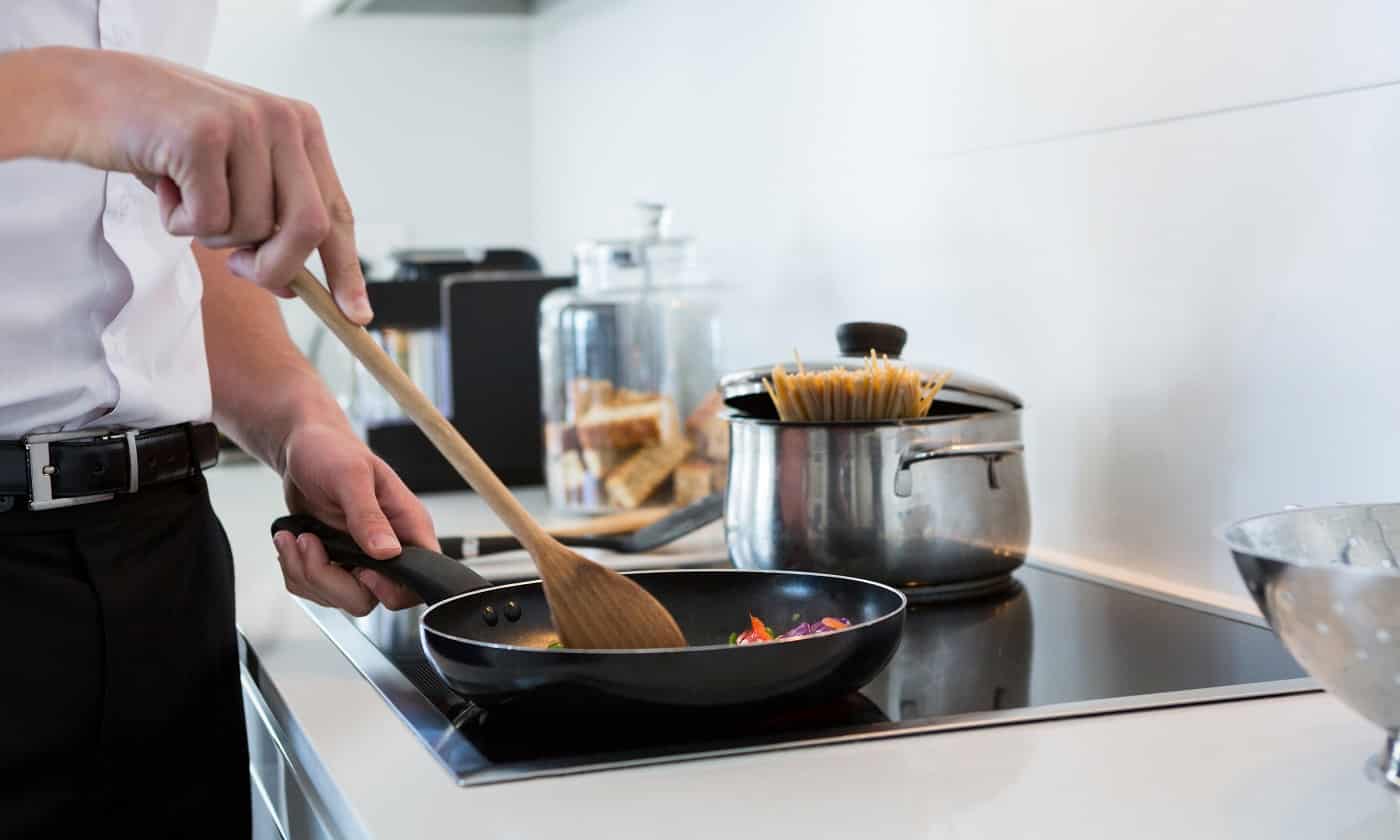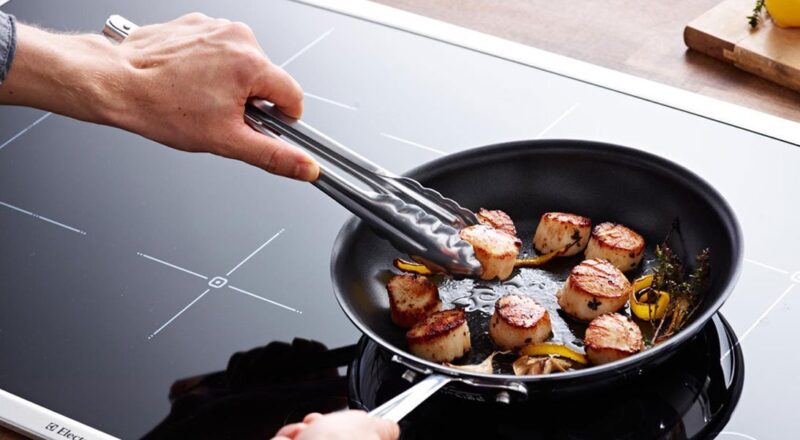Many home cooks and professional chefs alike are curious about how fast cast iron heats on induction cooktops. This popular question arises due to the increasing use of induction stoves in modern kitchens. Induction cooking is known for its efficiency and speed, but how does it perform with the beloved cast iron skillet? In this article, we’ll explore the relationship between cast iron and induction heating, providing you with an in-depth understanding of their compatibility.

Understanding Induction Cooktops
Induction cooktops are a modern marvel in the world of cooking. Unlike traditional gas or electric stoves, induction cooktops use electromagnetic fields to heat pots and pans directly. This means that the cooktop itself remains relatively cool, while the cookware heats up rapidly. But how does this technology affect the way cast iron heats up?
The Science Behind Induction
Induction cooktops work by creating a magnetic field that induces an electric current in the cookware. This current generates heat, allowing the pan to cook food efficiently. Cast iron, being ferrous, is highly compatible with induction cooking. It responds well to the magnetic fields, heating up quickly and evenly.
Factors Affecting Heating Speed
While cast iron does heat quickly on an induction cooktop, several factors can affect the speed at which it heats. These include the thickness of the cast iron, the size of the pan, and the power settings of the induction cooktop. Let’s look at these factors in more detail.
Thickness of Cast Iron
The thickness of a cast iron pan plays a crucial role in how fast it heats up. Thicker pans will take longer to heat but will retain heat better. On the other hand, thinner pans heat up quickly but may not retain heat as well.
Size of the Pan
The size of the cast iron pan also affects heating speed. Larger pans require more energy to heat evenly, whereas smaller pans will heat up more quickly. It is essential to match the size of the pan to the size of the induction cooktop’s heating element for optimal efficiency.
Power Settings of Induction Cooktop
Induction cooktops come with various power settings, allowing users to control the heat output. Higher power settings will heat cast iron faster, but it’s crucial to adjust the settings based on the recipe and cooking requirements to prevent overheating or burning.
Benefits of Using Cast Iron on Induction
Using cast iron on an induction cooktop offers several benefits that enhance the cooking experience. These advantages make it a preferred choice for many culinary enthusiasts.
Even Heat Distribution
One of the primary benefits of using cast iron is its ability to distribute heat evenly. This characteristic ensures that food cooks uniformly, reducing the risk of hot spots and uneven cooking.
Retains Heat Well
Cast iron is known for its excellent heat retention properties. Once heated, it maintains a consistent temperature, making it ideal for dishes that require long cooking times.
Durability and Versatility
Cast iron is incredibly durable and can withstand high temperatures. It can be used for a wide range of cooking techniques, from searing meat to baking. Its versatility makes it a valuable addition to any kitchen.
Challenges of Using Cast Iron on Induction
While there are numerous benefits to using cast iron on induction cooktops, there are also some challenges that users may encounter. Being aware of these challenges can help you make the most of your cooking experience.
Weight of Cast Iron
Cast iron cookware is typically heavier than other materials, which can make it cumbersome to handle, especially when full. Care should be taken when lifting and moving cast iron on an induction cooktop.
Requires Seasoning
To maintain its non-stick properties and prevent rust, cast iron requires regular seasoning. This process involves applying a thin layer of oil and heating the pan to create a protective coating.
Slow to Cool Down
While cast iron heats up quickly on induction, it also takes longer to cool down. This characteristic can be advantageous for certain recipes but may require adjustments for others.
Best Practices for Using Cast Iron on Induction
To ensure an optimal cooking experience, it’s essential to follow some best practices when using cast iron on induction cooktops. These tips will help you get the most out of your cookware.
Preheat Gradually
Start by preheating your cast iron pan on a lower power setting before increasing the heat. This gradual process helps prevent warping and ensures even heating.
Match Cooktop and Pan Size
Ensure that the size of the cast iron pan matches the size of the induction cooktop’s heating element. This alignment maximizes energy efficiency and prevents overheating.
Maintain Proper Seasoning
Regularly season your cast iron pan to maintain its non-stick properties and extend its lifespan. After each use, clean the pan and apply a thin layer of oil before storing it.
Conclusion
In conclusion, understanding how fast cast iron heats on induction cooktops can significantly enhance your cooking experience. The combination of cast iron and induction technology offers efficiency, even heat distribution, and versatility. By considering factors such as pan thickness, size, and cooktop settings, you can optimize your cooking with cast iron. Embrace the benefits and challenges of using cast iron on induction, and enjoy the array of dishes you can create with this dynamic duo.

FAQs
Does induction heat cast iron evenly?
Yes, induction cooktops heat cast iron evenly due to the magnetic properties of the material. This ensures consistent and uniform cooking.
Can I use any cast iron on induction?
Most cast iron pans are compatible with induction cooktops. However, it’s essential to ensure that the pan’s base is flat for optimal performance.
Is cast iron suitable for high-heat cooking on induction?
Yes, cast iron is ideal for high-heat cooking on induction. Its excellent heat retention properties make it perfect for searing and frying.
For more detailed information on using cast iron and induction cooktops, visit Does Cast Iron Work on Induction. Additionally, explore the benefits of using cast iron for searing meat and making pancakes on induction cooktops.
This article contains affiliate links. We may earn a commission at no extra cost to you.

